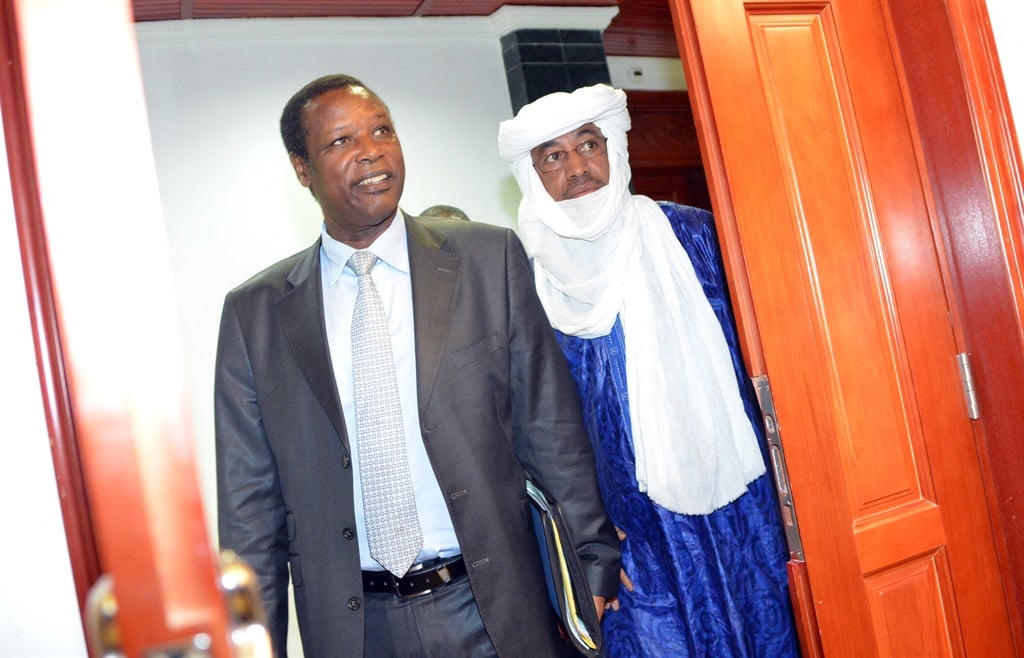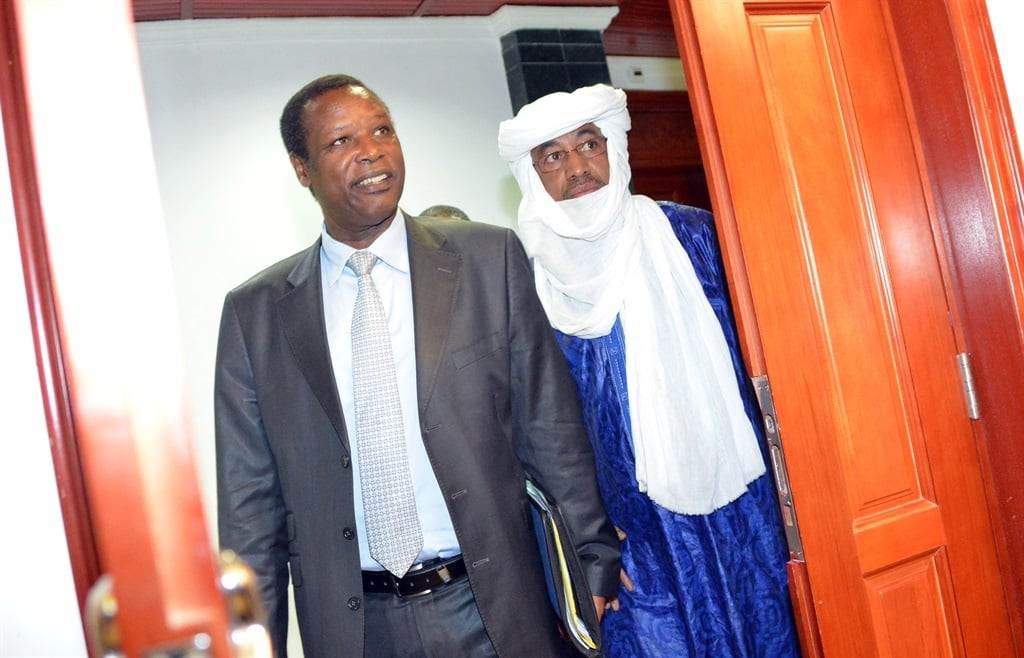Top Stories Tamfitronics

Pierre Buyoya (L), then the African Union representative to Mali, seen in June 2013. (AHMED OUOBA /AFP)
- Pierre Buyoya will finally be buried in Burundi, in a private ceremony on Wednesday.
- He died in France during the Covid pandemic in late 2020.
- Buyoya was initially buried in Mali as a consequence of his complex history that saw him both praised for championing democracy and sentenced for an assassination that started a brutal war.
The body of Burundi’s former president Pierre Buyoya was repatriated to his home country on Tuesday, more than three years after he was buried thousands of kilometres away in Mali.
Buyoya, who was credited with helping push democracy in the small African nation but accused of involvement in his successor’s assassination, died in Paris in December 2020 after contracting Covid-19.
Later that month Buyoya, who died aged 71, was interred in the Malian capital Bamako, his base for eight years as the African Union’s special envoy to Mali and the Sahel.
At the time, a senior Burundian government official had said Buyoya had the right to be buried in his home country but would not be given the honours afforded to a former head of state because of the sentence against him.
A source at the airport in Burundi’s main city Bujumbura said the plane carrying his remains touched down early Tuesday afternoon.
“In order to respect the last wishes of the deceased, the family has requested and obtained from the Burundian authorities permission to repatriate and rebury his remains in his native country,” the Buyoya’s family said in a statement sent to AFP on Monday.
The reburial will take place in a private ceremony on Wednesday at the family property in the southern town of Rutovo.
Buyoya, an ethnic Tutsi army officer, first came to power in a coup in 1987.
He stepped down in 1993 in Burundi’s first democratic elections in which Melchior Ndadaye, a Hutu, beat him resoundingly for the presidency.
He returned to the presidency in 1996, again in a coup, and in 2000 signed the Arusha Accords aimed at ending the country’s brutal civil war. He stepped down in 2003 under the terms of the agreement.
In October 2020, he was given a life sentence in absentia along with 18 other defendants over the assassination of Ndadaye by hardline Tutsi soldiers after less than four months in office.
The killing triggered a decade-long conflict between the majority Hutus and minority Tutsis that left an estimated 300,000 people dead.
Buyoya had dismissed the trial as a “sham” but later quit his AU post, saying he wanted to clear his name.
Burundi has been ruled since 2005 by the CNDD-FDD party, which emerged from the main Hutu revolt.
In 2015, then-president Pierre Nkurunziza’s run for a third term in office sparked protests and a failed coup, with violence leaving at least 1 200 people dead while some 400 000 fled the country.
Nkurunziza, a devout evangelical, died unexpectedly in June 2020, shortly before he was due to hand over to Evariste Ndayishimiye, a hardliner who had won elections the previous month and remains in power to this day.



